Parliamentary Assembly of the Mediterranean
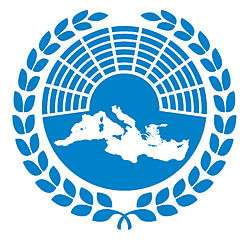
The Parliamentary Assembly of the Mediterranean (PAM) is an international organisation established in 2005, following fifteen years of cooperation among States of the Mediterranean region. Cooperation focused on themes of common interest, such as political, socio-economic and environmental issues. The members of this organization have discussed these issues at periodic Conferences on Security and Cooperation, the first of which was held in 1990 and developed under the auspices of the Inter-Parliamentary Union.
The PAM headquarters is hosted in Malta, at Palazzo Spinola in St. Julian's.[1][2]
Objectives
The main objective of PAM is to forge political, economic and social cooperation among the member states in order to find common solutions to the challenges facing the region, and to create a space for peace and prosperity for the Mediterranean peoples.
PAM's membership is open exclusively to Mediterranean countries, which are represented on equal footing. This is reflected in the composition of the Bureau and the alternating Presidency. The current President of PAM is Sen. Dr. Mohamed Cheickh Biadillah of Morocco. Each national delegation has five members with equal voting and decision-making powers. Associate Members and Observers do not have voting rights.
PAM conducts the bulk of its work within three standing committees. The standing committees focus on three strategic areas; the first standing committee is dedicated to political and security cooperation, the second is focused on economic, social and environmental issues, while the third standing committee addresses dialogue amongst civilisations and human rights issues. The PAM may also set up ad hoc committees or special task forces for particular topics, such as the Middle East, migration, free trade, terrorism, climate change, and others.
Secretariat
The Secretariat assists the PAM President, the PAM Bureau and all members in the execution of their mandate, and is responsible for providing coordination. assistance, and support to the work of the Committees and all other bodies established under PAM.
The Secretariat interacts with national delegations, as well as with regional and international bodies sharing an interest in the Mediterranean region. It stimulates the activities of the Assembly, and awards the PAM Prize, dedicated to individuals or institutions whose work is considered important for the Mediterranean region. The Secretary-General, assisted by international and local staff, directs the Secretariat. Ambassador Sergio Piazzi is the current Secretary-General.
Relations with non-Mediterranean countries and international institutions
The membership criteria and geographical location of its members position PAM as a central actor in the Mediterranean region.
The General Assembly of the United Nations granted observer status to the Parliamentary Assembly of the Mediterranean, by the Resolution A/RES/64/124, at its 64th Session on 16 December 2009.
Local parliamentarians are key to political decision-making processes within the PAM. In furtherance of its objectives, PAM encourages the inter-governmental support of the main actors in the region as well as regional institutions.
Membership
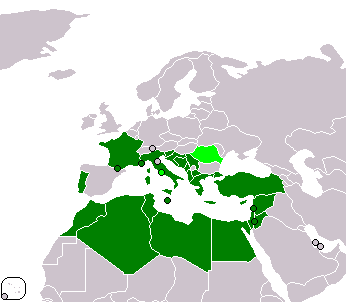
As of 2012 there are 26 member parliaments, 2 associate partners and 12 observer organizations.[3]
Member states
-
 Albania
Albania -
 Algeria
Algeria -
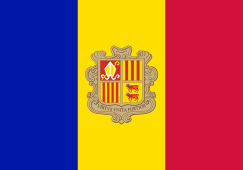 Andorra
Andorra -
 Bosnia-Herzegovina
Bosnia-Herzegovina -
 Croatia
Croatia -
 Cyprus
Cyprus -
 Egypt
Egypt -
 France
France -
 Greece
Greece -
 Israel
Israel -
 Italy
Italy -
 Jordan
Jordan -
 Lebanon
Lebanon -
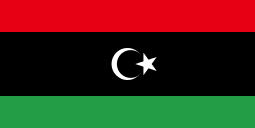 Libya
Libya -
 Malta
Malta -
 Monaco
Monaco -
 Montenegro
Montenegro -
 Morocco
Morocco -
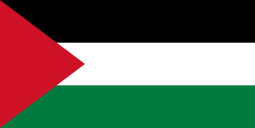 Palestine
Palestine -
 Portugal
Portugal -
 Serbia
Serbia -
 Slovenia
Slovenia -
 Syria
Syria -
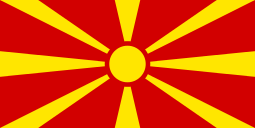 Macedonia
Macedonia -
 Tunisia
Tunisia -
 Turkey
Turkey
Associate and partner states
International organization partners
- Arab Inter-parliamentary Union
- Comprehensive Nuclear-Test-Ban Treaty Organization Preparatory Commission
- Euro-Mediterranean University
- Union for the Mediterranean
-
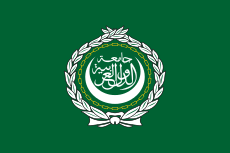 Arab League
Arab League - Maghreb Consultative Council of the Arab Maghreb Union
- Mediterranean Energy Regulators (MEDREG)
- Organisation of the Black Sea Economic Cooperation
- Organization of Islamic Cooperation
-
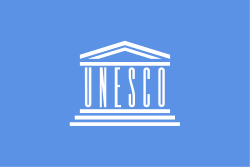 UNESCO
UNESCO - World Meteorological Organisation
-
 United Nations[4]
United Nations[4] -
 Parliamentary Assembly of the Council of Europe
Parliamentary Assembly of the Council of Europe -
 NATO
NATO - Inter-Parliamentary Union
- Organization for Security and Co-operation in Europe
- European Bank for Reconstruction and Development
Headquarters
The Headquarters of the General Secretariat of PAM were established in Malta in November 2007, in recognition of Malta's strategic role and commitment in organizing the PAM.
References
- ↑ Malta and Gozo
- ↑ PALAZZO SPINOLA - PAM HQ INAUGURATION. Parliamentary Assembly of the Mediterranean. pam.int. 22 November 2007. Retrieved on 10 August 2016.
- ↑ List by National Delegation, Associate Members and Observers
- ↑ PAM is one of the UN observers.